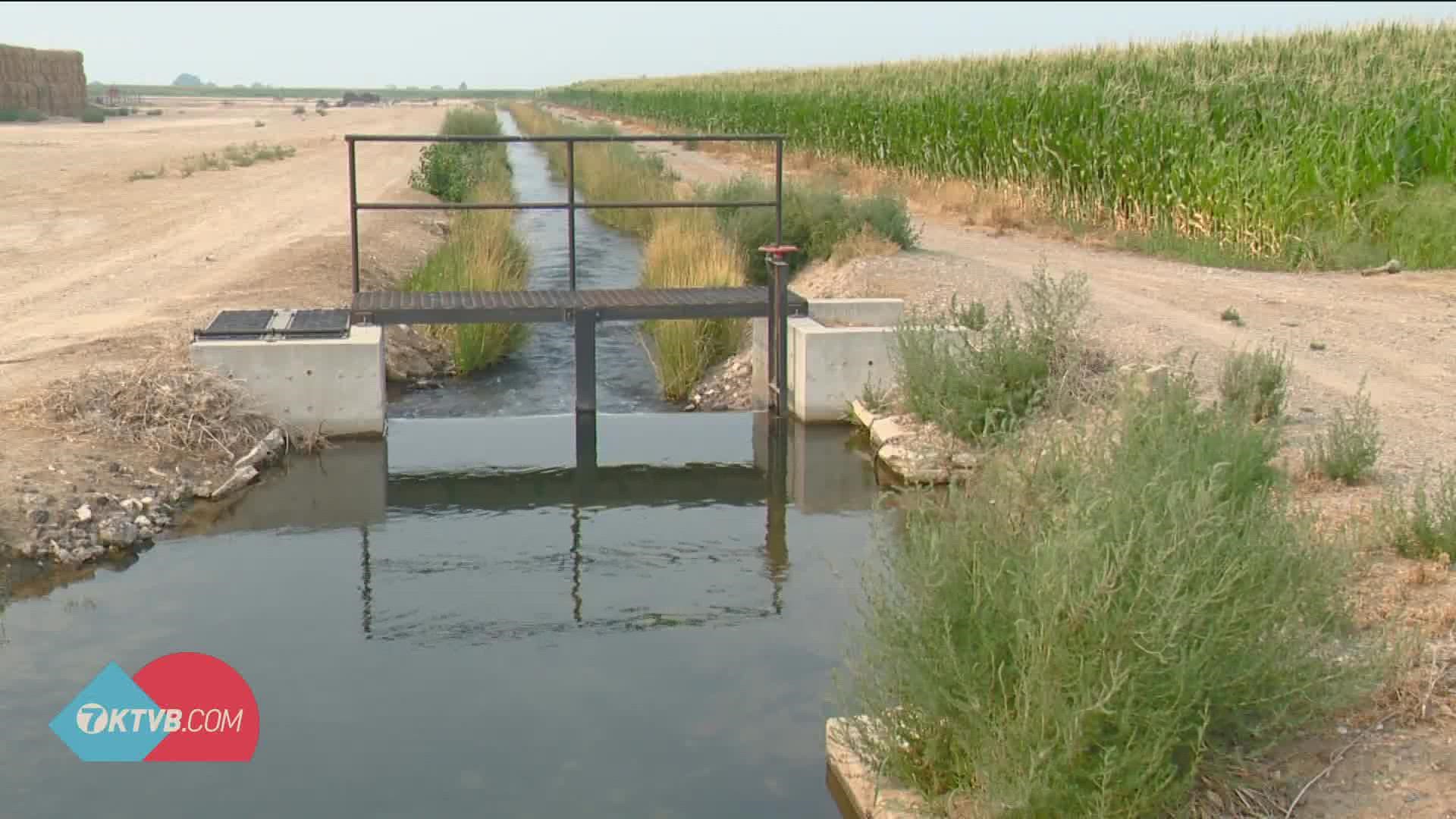NAMPA, Idaho — Early Thursday morning, water from the Boise River will start flowing down the head of Ridenbaugh Canal, near Barber Park. The Nampa & Meridian Irrigation District (NMID) announced Wednesday that it again faces "very limited supplies of water going into this irrigation season," and water deliveries will begin no earlier than April 22, eight days after the district begins filling canals.
The NMID's canals and ditches deliver water to agricultural operations -- farms. After two consecutive water years in which snowpack and precipitation were significantly below average for the Boise River basin, this is a big question: Will there be enough water for the Treasure Valley's farming needs?
"That's honestly something we're going on day by day, as everybody's probably aware. You know, it's been in the news a lot. We thought in December we had it made, and then Mother Nature cut off our supply," said Greg Curtis, water superintendent for the Nampa & Meridian Irrigation District. "We've been watching the supply all winter long and had concerns. Like everybody else, we kept thinking, 'oh, this next storm coming will be good,' and then we didn't get much out of it."
The NMID Board of Directors decided in its April 5 meeting to begin filling canals at 2 a.m. on Thursday, April 14. NMID also will begin charging up its pressurized irrigation systems on Thursday. District officials said residents need to have their systems ready to receive water. The NMID advises people who live in Nampa and have questions about pressurized irrigation delivery to check with the city's Water Works Division at 208-468-5860.
With major concerns about a low water supply, many people around the valley are talking about conserving water this spring and summer. Curtis said he's encouraged by those discussions.
"Farmers have to do what they have to do to make it through. Some are using well water and whatever to get them through," Curtis said, adding some have changed what they've planted or chosen not to grow certain crops. "A lot of people have called up and said, you know, what can we do to make sure the farmers get more water?
"This year is going to be really important for everybody; do your part. If your lawn's doing fine, don't water," Curtis said. "The biggest misconception out there is 'the water's in the ditch. If we don't use it, it's going to waste.' And that could not be a more wrong statement, This water in this valley gets used over five times, again and again and again."
The less water used early in irrigation season, the more water is available later in the summer and into fall, extending the season for some valuable crops.
"Sugar beets and corn and alfalfa -- it takes the water it takes, especially if the heat turns up. If everybody else does their part, then we can extend this season and get them where they need to be, at least into August," Curtis said.
Another concern is safety around canals and the dangerous conditions as irrigation season begins. Once water starts flowing Thursday morning, water levels in the canals will change daily. That water is very cold and the currents are fast, NMID officials warn. Swimming in canals or playing along canal banks is prohibited.
Water managers also ask people who live along canals or ditches to keep those areas clear of obstructions.
Join 'The 208' conversation:
- Text us at (208) 321-5614
- E-mail us at the208@ktvb.com
- Join our The 208 Facebook group: https://www.facebook.com/groups/the208KTVB/
- Follow us on Twitter: @the208KTVB or tweet #the208 and #SoIdaho
- Follow us on Instagram: @the208KTVB
- Bookmark our landing page: /the-208
- Still reading this list? We're on YouTube, too:

